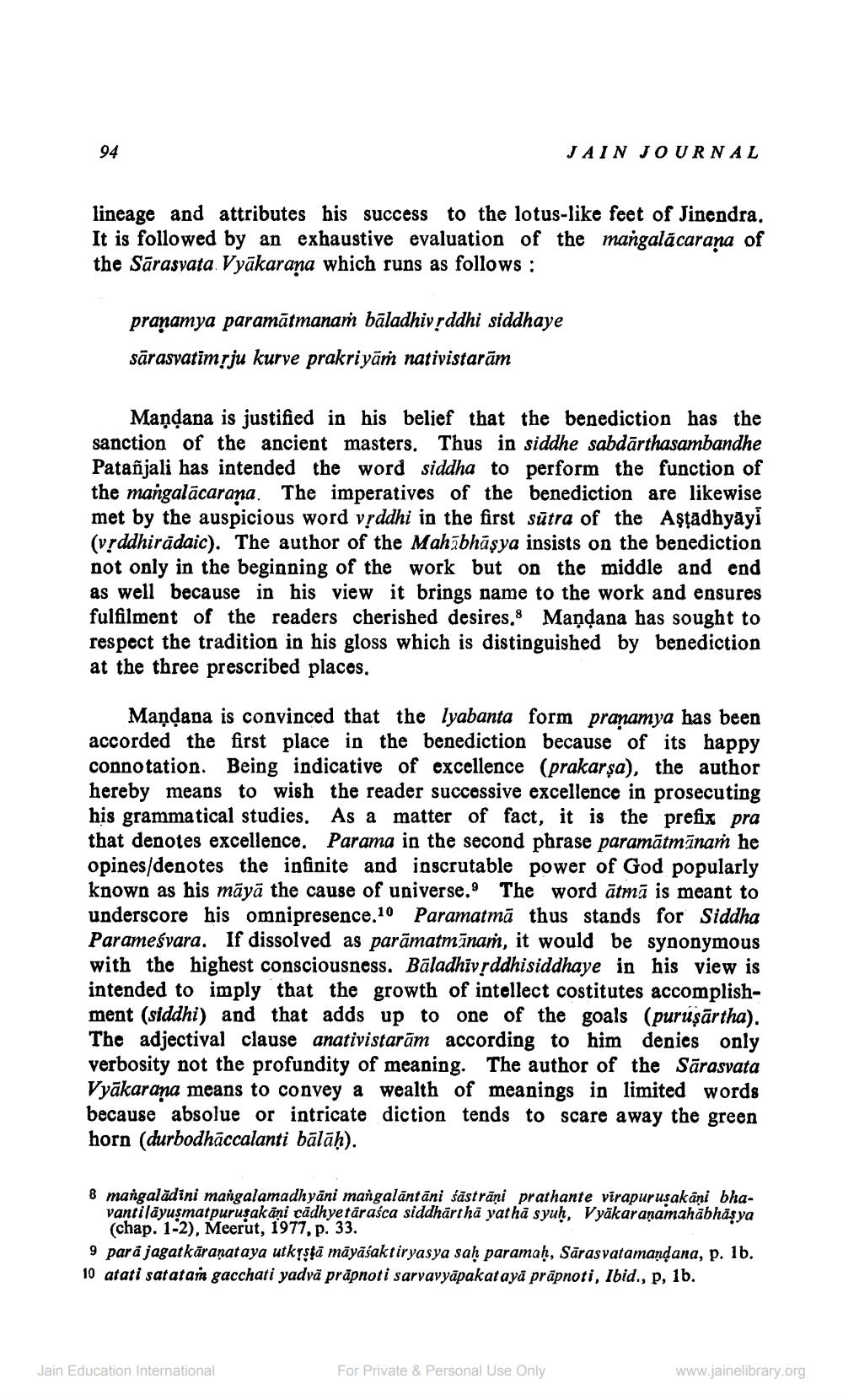________________
94
lineage and attributes his success to the lotus-like feet of Jinendra. It is followed by an exhaustive evaluation of the mangalacarana of the Sarasvata. Vyakarana which runs as follows:
pranamya paramātmanaṁ bāladhivṛddhi siddhaye sarasvatimṛju kurve prakriyām nativistarām
JAIN JOURNAL
Mandana is justified in his belief that the benediction has the sanction of the ancient masters. Thus in siddhe sabdarthasambandhe Patanjali has intended the word siddha to perform the function of the mangalācarana. The imperatives of the benediction are likewise met by the auspicious word vṛddhi in the first sutra of the Aşṭadhyāyi (vṛddhiradaic). The author of the Mahābhāṣya insists on the benediction not only in the beginning of the work but on the middle and end as well because in his view it brings name to the work and ensures fulfilment of the readers cherished desires. Mandana has sought to respect the tradition in his gloss which is distinguished by benediction at the three prescribed places.
Mandana is convinced that the lyabanta form pranamya has been accorded the first place in the benediction because of its happy connotation. Being indicative of excellence (prakarsa), the author hereby means to wish the reader successive excellence in prosecuting his grammatical studies. As a matter of fact, it is the prefix pra that denotes excellence. Parama in the second phrase paramātmānam he opines/denotes the infinite and inscrutable power of God popularly known as his māyā the cause of universe. The word ātmā is meant to underscore his omnipresence.10 Paramatma thus stands for Siddha Paramesvara. If dissolved as paramatmānam, it would be synonymous with the highest consciousness. Baladhivṛddhisiddhaye in his view is intended to imply that the growth of intellect costitutes accomplishment (siddhi) and that adds up to one of the goals (puruṣārtha). The adjectival clause anativistarām according to him denies only verbosity not the profundity of meaning. The author of the Sarasvata Vyakarana means to convey a wealth of meanings in limited words because absolue or intricate diction tends to scare away the green horn (durbodhaccalanti bālāḥ).
8 mangalădini mangalamadhyāni mangalāntāni śāstrāṇi prathante virapuruşakāņi bhavantilayuşmatpurusakani cadhyetärasca siddhartha yatha syuḥ, Vyakaraṇamahābhāṣya (chap. 1-2), Meerut, 1977, p. 33.
9 para jagatkāraṇataya utkṛṣṭā māyāśaktiryasya saḥ paramaḥ, Sārasvatamaṇḍana, p. 1b. 10 atati satatam gacchati yadvä präpnoti sarvavyāpakatayā präpnoti, Ibid., p, 1b.
Jain Education International
For Private & Personal Use Only
www.jainelibrary.org




